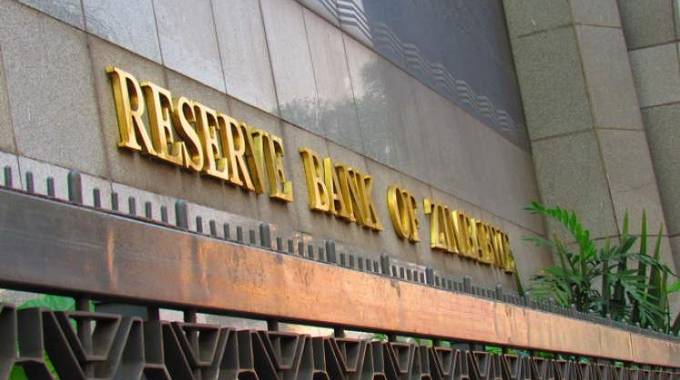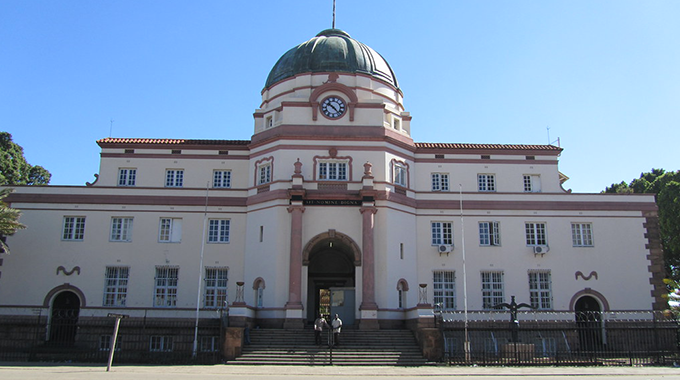Unpacking the RBZ’s forex trading, fixed exchange rate

Victor Nyoni
THE announcement by the Reserve Bank of Zimbabwe (RBZ) Governor, Dr John Mangudya, that individuals and businesses can now trade freely in forex and the fixing of the exchange rate at US$1:ZW$25, has generated a lot of public interest. Coming from a background of illegal forex trading since adoption of Zim-dollar last year in June, several questions are being asked in terms of what the latest measures mean for the ordinary person on the street. The business community, both formal and informal, is also keenly interested in terms of implications of the move on their operations. According to Dr Mangudya, the latest measures are meant to assist the country in dealing with the financial vulnerabilities caused by the COVID -19 pandemic.
For starters, it is critical to note that indeed COVID- 19 is causing a lot of suffering for both the business and transacting public. As such, the intervention by Government through RBZ is an important one to all economic actors and is certainly timely. There are, however, some areas in the policy that require urgent tightening and as the Association for Business in Zimbabwe (ABUZ) we avail this analysis on the statement.
Fixing the exchange rate
The fixing of the exchange rate is important in giving certainty in the pricing of goods and services. Prices of goods and services in Zimbabwe have been increasing on daily basis even for the supplies that are critical in the fight against COVID -19. It had become necessary for the Government to intervene and sanitise the market. There is, however, a problem here given our economic circumstances. The pricing culture in the country has been that of reacting to the informal market rates movement rather the official rates movement except for services provided by the Government.
Even some quasi-Government entities have clearly been tracking the informal rates in the pricing of their products. The Government intervention is, therefore, not clear on what will make businesses use the rate of 1:25 when pricing products and services. Truth be told, most businesses are getting foreign currency from the informal market where the rates are pegged at between 1:45 and 1:50. The gap between the formal and informal market rates still creates a huge arbitrage window to make no business sense for anyone to participate in the formal market only for purposes of forex trading.
The biggest challenge in our economy is the unavailability of foreign currency in the formal platforms for businesses to meet their needs. Whilst the intention by the Government is to be commended, ABUZ fears that the policy is not tight enough to bring intended benefits to both business and the transacting public.
Option to pay using free funds (forex)
The Government must clarify if some businesses particularly the supermarkets are now allowed to sell in United States Dollars. If so, this unfortunately will cause a critical part of our economy to dollarize. Supermarkets cannot sell in forex whilst they pay their suppliers in local currency. It becomes an unfair trade. Suppliers too would want to be paid in forex in order to meet their forex obligations with ease.
Another challenge is that supermarkets will apply mechanisms to attract customers with forex. This will mean that one supermarket will begin to offer higher rates above the 1:25 stipulated by Government and that will further devalue the Zimbabwe dollar. Again, with our black market in place who will exchange the USD at 1: 25 when they can obtain more in the streets and still buy from the shops that will observe the application of the fixed rate rule. The Zimbabwe economy was already under pressure to dollarize and the new policy will just enhance it. The concept of free funds is most likely going to be abused by the transacting public leaving business with no choice but to price in the United States dollars right across all sectors.
Reduction of bank policy rate
Business has always been of the view that the price of money in Zimbabwe was too high. Reducing rates from 35 percent to 25 percent is indeed a welcome intervention. It is ABUZ’s hope that banks will quickly implement this policy. Our understanding is that this policy should equally apply to existing loans as it will apply to new loans.
In conclusion, we argue that the challenges caused by COVID-19 require unconditional collaboration between private and public sectors. To this end ABUZ members are implementing all recommendations in the fight against the spread of the pandemic. As an association for business we offer ourselves to implement all Government policies that are aimed at ensuring that COVID- 19 does not spread. We will share with our Government whatever information we come across on the ground.
Victor Nyoni is the chief executive officer for ABUZ. He can be contacted for feedback on 0772380305.











Comments